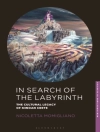At the center of this investigation is the great modernization effort of a West German state, Bavaria, in the 1970s and 1980s, by means of a reform of the smaller units of local government. The reforms were meant to abolish all autonomous local governments serving populations of fewer than 3, 000, thereby reducing the number of local governments in Bavaria from more than 7, 000 to less than 2, 000. Based on interviews, surveys, and statistical research, this study chronicles fifteen communities and their challenges, developments, and social changes from post-1945 up to the present. While this book explores the decline of the iconic village community, it also reveals the survival of medieval towns in a contemporary world, and despite the modern desire for comprehensive and well-integrated services, there remains a seemingly perennial appeal of small town and village life.
Inhoudsopgave
List of Figures
Acknowledgements
Introduction
- The Plan for this Book
Chapter 1. Changing Villages and Small Places in Bavaria
- Contemporary Social Change
- Population Trends
- Stages of Community Development
- The Transformation of Agriculture
Chapter 2. The Small Town or Village Community
- Secularization and Community Life
- The Elementary School and the Community
- Social Groups and Festivals in West Middle Franconia
- Economic Enterprises of the Community
- The Future of Small Places
Chapter 3. Planning Local Territorial Reform
- The Era of Reforms
- Federal Initiatives Toward Raumordnung
- Bavaria Tackles Territorial Reorganization
- Regional Planning and Administrative Reform
- The Kreisreform
- The Independent City and Hinterland Reforms
- The Communal Territorial Reform
Chapter 4. The Implementation of the Reform
- Implementation of the Local Reform
- The Reform in Middle Franconia
- Patterns of Reaction to Bavaria’s Reform
- Toward a Modern, Functional Society
Chapter 5. No Town is an Island Local Government in the West German System
- Federalism in the Basic Law
- The Changing Federal Financial Constitution
- Cooperative Federalism or Politikverflechtung?
- The Future Role of the Communes
- The Laäender and the European Union
Chapter 6. Conclusion
- Mini-Towns and Micro-Communes
- Revisiting Wolframs-Eschenbach
- Re-interviewing the Bürgermeisters
- Small Town and Village in Bavaria
Appendix: Tables A1–A15
Selected Bibliography
Index
Over de auteur
Peter H. Merkl is Professor Emeritus of Political Science at the University of California, Santa Barbara. He has published extensively on comparative and German government and politics, in particular the origin of the West German Republic and German unification. He also edited a series of volumes on German politics.












